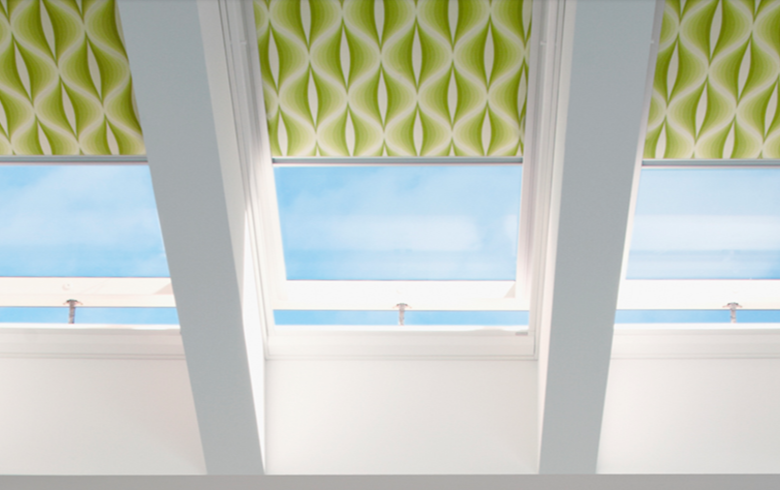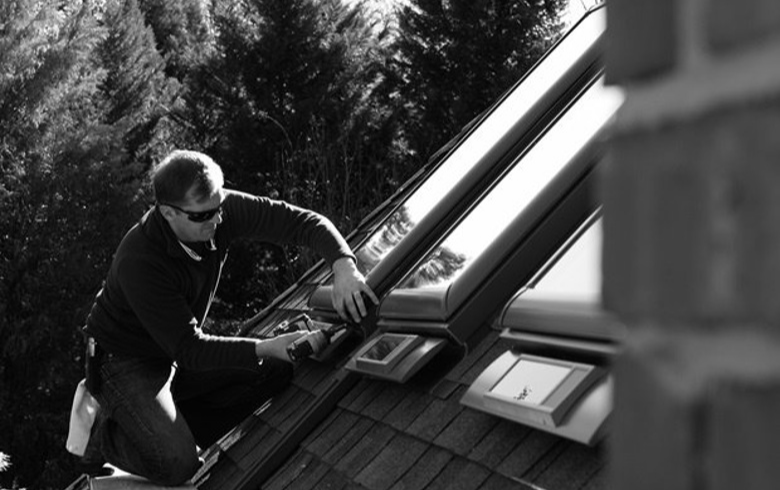Title 24 and Skylights Have a Unique Relationship
It's important to follow state- and nation-wide building codes and regulations, especially when it comes to Title 24 and skylights. If you don’t, the project may not pass final inspection.
In California, the building codes are covered under Title 24. This is a unique set of building codes that exists in California. They were written into law as a result of the energy crisis of the 1970s. VELUX wants to remind architects and new builders that there are a few regulations regarding skylights and other types of fenestration.
Skylights and Title 24
In Title 24 Part 6, skylights are addressed alongside vertical windows and glass doors. This section establishes regulations for installing them, as well as labeling and certification regarding:
- U-factor
- Solar heat gain coefficient (SHGC)
- Visible transmittance
- Air leakage
- Thermal bridging
All of these regulations are to ensure that the building is structurally sound and as energy efficient as possible.
There are two testing methods to ensure compliance with Title 24 and Skylights:
- The Title 24 prescriptive method requires that each component of the building be tested one at a time to ensure each one meets all requirements of Title 24.
- The Title 24 performance method requires that the building be tested and considered as a complete unit. A computer program is used to calculate energy consumption and the necessary trade-offs, to ensure energy efficiency standards outlined in Title 24 have been met.
Skylight Exemptions Within Title 24
Skylights have a fenestration rating that exceeds what is allowed in Title 24. However, there is a skylight exemption written into this code that allows California homeowners the opportunity to add them to their homes.
According to Title 24, only a certain percentage of any given building may feature fenestration - or windows or doors - on its elevations. For example, the maximum total fenestration area of a building can not exceed the percentage of conditioned floor space. This includes west-facing skylights tilted in any direction when the pitch is less than 1:12.
Additionally, U-factor and SHGC requirements of the initially installed fenestration products are outlined in Title 24's TABLE 150.1-A, along with Sections 110.6(a)2 and 110.6(a)3.
In these sections, Title 24 also outlines the exceptions to these codes:
Exception #1: For each dwelling unit, up to 3 sq. ft. of new tubular skylights with dual-pane diffusers, such as the VELUX Sun Tunnel, are not required to meet the U-factor and SHGC requirements. This means up to 3 separate 14" Sun Tunnels can be added to an existing home without pulling a permit or needing to pass a state inspection.
Exception #2: For each dwelling unit, up to 16 sq. ft. of new skylight with a maximum U-factor of 0.55 and a maximum SHGC of 0.30 is allowed. These skylights can be fixed or ventilating. Standard VELUX skylight configurations include:
- One 4' x 4' unit
- Two 2' x 4' units
- Two 2' x 3' units and one 2' x 2' unit
Which Method to Choose When Adding Skylights to a California Home
The two exceptions above allow homeowners to add skylights and sun tunnels to buildings that have already reached the fenestration limit, which is a U-factor of 0.55 and an SHGC of 0.30.
If the Title 24 prescriptive method is being used to verify compliance, the homeowner won't need to receive approval to utilize the skylight exceptions listed above. However, if the Title 24 performance method is being used, approval from the energy engineering group certifying the structure will be required.
VELUX Can Help Understand Title 24 and Skylights
As you can see, these exceptions are important to know when installing skylights and Sun Tunnels in California. If you are a homeowner with any questions regarding Title 24, please reach out to our Design and Product advisors. For architects, home builders, and installers, we offer hands-on in-class and on-the-job skylight installation training in select areas.
Skylights and Title 24 Can be Confusing. VELUX Can Help!
Reach out to our skylight experts for pros with any questions.
Or you can also subscribe above for more information or leave a comment below.





